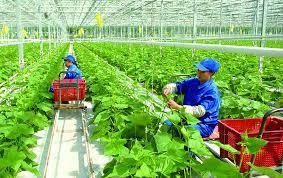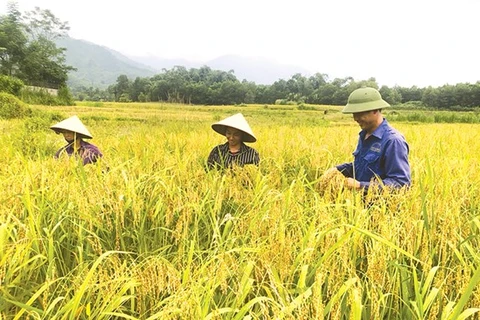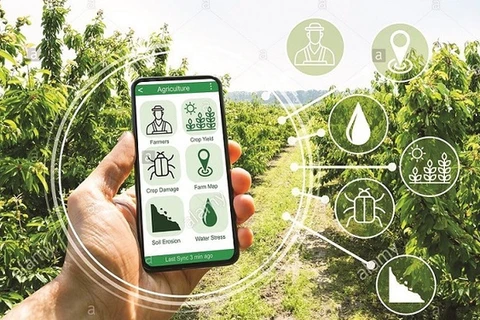 All 25 communes of Soc Son district, Hanoi, have been recognised as new-style rural areas.(Photo: VNA)
All 25 communes of Soc Son district, Hanoi, have been recognised as new-style rural areas.(Photo: VNA) The statistics were revealed at a conference of the Ministry of Agriculture and Rural Development (MARD) on Monday. It aimed to review almost three-year implementation of national target programme on building new rural areas in the 2021-25 period.
Ngo Truong Son, chief of the Central Coordinating Office for New Rural Development, said 73.65% of communes nationwide have been so far recognised as new-style rural areas, increasing by 11.3% compared to 2020.
Nineteen centrally-run provinces and cities have all wards and communes recognised as new-style rural areas. Hanoi and Nam Dinh, Dong Nai, Ha Nam, Hung Yen and Hai Duong provinces have received Prime Minister’s certificates of accomplishing the programme, he said.
The multidimensional poverty rate in rural areas in 2022 reached 5.4%, reducing by 1.7 percentage points compared to 2020.
But according to reports by the Ministry of Agriculture and Rural Development, there are gaps in the progress of building new-style rural areas among regions.
Hundred% of communes in the Red River Delta and 91.4% in southeastern region have been recognised while the proportion in northern mountainous and Central Highlands regions have been only 47.7% and 58.6%, respectively.
Sixteen districts located in 12 provinces have no communes achieving new-style rural area title including Muong Lat district of central Thanh Hoa province, Mu Cang Chai district in the northern mountainous province of Yen Bai.
Minister of Agriculture and Rural Development Le Minh Hoan urged agencies and localities to apply new initiatives and models to accelerate building new-style rural areas.
He said the national target programme is not just about building bridges, roads and schools but also a multi-purpose programme focusing on six pillars.
They are rural tourism development; science and technology in service of new rural construction; digital transformation; environmental protection, food safety and rural clean water supply; One Commune One Product (OCOP) programme. Gender equality, nutrition for rural residents, agricultural extension are other sectors covered.
Minister Hoan raised the question about how to develop OCOP programme, urging communities to engage in promoting their locality’s products.
“Dong Thap province has hundreds of OCOP products but I can not find any of them at the supermarket. Where have OCOP products been sold?” he asked.
“If we do not treasure products made by us, we can not expect the markets to accept our products,” he added, proposing that criteria for OCOP products should not only product quality, packaging but also the participation of local community in making the products and market management.
To speed up the new style rural area development programme, the MARD plans to double State investment in the 2021-30 period in agriculture and rural areas compared to 2011-20 period, focusing budget on supporting disadvantaged ethnic minority, mountainous, border and island localities in shortening development gaps./.
VNA






















